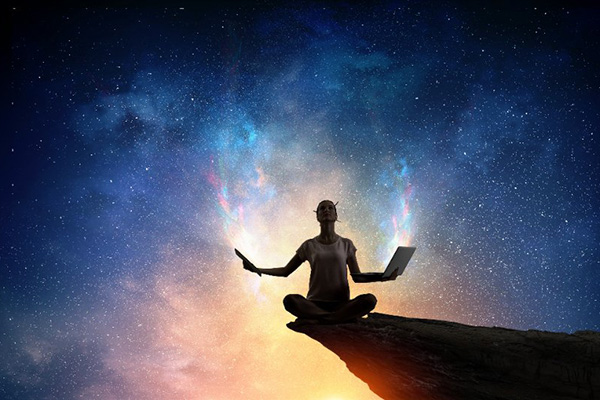self-empowerment
Don’t Walk On Eggshells Anymore!
 Do you often find yourself around people that make you feel like you have to monitor every single thing you say, for fear you may be hurting their feelings? Do you constantly have to be cautious and guarded around certain people in your life, because they internalize everything you say? It really is like walking on eggshells!
Do you often find yourself around people that make you feel like you have to monitor every single thing you say, for fear you may be hurting their feelings? Do you constantly have to be cautious and guarded around certain people in your life, because they internalize everything you say? It really is like walking on eggshells!
I used to have a friend like that. At first I complied, but then one day I decided to start talking like I would normally talk to my other friends. I wanted to see what effect it would have on this person. Well, it actually helped in the end, as it soon made her see how silly she was being. In fact, she even confessed to how she felt bad for reacting as if the entire world revolved around her and her feelings. It turned out to be a meaningful opportunity for her personal growth.
Also, have you ever known anyone whom you shared some inner most concern or anxiety with, and they act like you are making a mountain out of a molehill? You trusted them by sharing your inner most fear or heartache, and they react like it is nothing or you are just being silly. They may even turn around and act as if what you are saying is just plain wrong, or irrelevant! As a highly sensitive person I have experienced this many times in my life and it’s no fun, trust me. And if you’re like me, you just stop talking to this person all together about anything that may deeply matter to you.
These interpersonal experiences can be frustrating and hurtful, but also very valuable to learn from. As soon as this kind of interaction happens with someone, it is useful to reflect on whom you can really trust and have faith in, and who not. If you become more aware of whom you surround yourself with, more people will come into your life that will truly hear you and really have compassion and a deep understanding of what you’re trying to impart. They will also be willing and able to give great advice and be a great sounding board for you, without being egotistical or simply uncaring!
The Transformational Power Of Self-Care
 As you journey towards the end of the beautiful summer season, prioritize self-care, as this is one of the most important things you can do for your mind, body and soul.
As you journey towards the end of the beautiful summer season, prioritize self-care, as this is one of the most important things you can do for your mind, body and soul.
What exactly is self-care? Self-care is any activity you do intentionally to take care of your mental, emotional, spiritual, or physical health and well-being. It’s about giving yourself the time and attention that you need to thrive.
When you take care of yourself, the most critical person in your world, you can better care for others, and do your work with greater purpose. It becomes easier to show up fully and more meaningfully for others in your life. In this manner, we can be more present with our loved ones, pursue our passions with greater focus, and feel happier overall.
By showing love to ourselves, we become more open to giving and receiving love from others. When we radiate love and peace, we attract more love and peace into our lives. It’s a beautiful cycle of giving and receiving that creates inner harmony and outer wellness.
It’s essential to find time each day to do something that relaxes and rejuvenates you, whether it is reading, going for a walk, or taking a yoga class. Self-care is vital because it helps you to stay healthy as a whole person.
Making time for yourself can relieve stress and tension, improving your overall health and well-being. Additionally, self-care can help you to avoid burnout on multiple levels.
Make sure to schedule time for yourself every day. You can use this time to do something you love without any obligations or expectations. Nurturing your happiness to be the best version of yourself for others is essential.
Let’s Go Girls, Vesta Is Calling Us!
 Vesta, or Hestia as she is known in Greek mythology, is an asteroid located between Mars and Jupiter that is currently retrograde until October 5th, 2022. This means it is currently in close proximity to Earth and actually visible to the naked eye until Sept 11th, 2022. Women in particular should be watching her path, and engage with her empowering, divine feminine energy at this time.
Vesta, or Hestia as she is known in Greek mythology, is an asteroid located between Mars and Jupiter that is currently retrograde until October 5th, 2022. This means it is currently in close proximity to Earth and actually visible to the naked eye until Sept 11th, 2022. Women in particular should be watching her path, and engage with her empowering, divine feminine energy at this time.
Some experts believe that according to a formula that predicts the spacing between planets in any given solar system, known as the Titius-Bode law, Vesta may be located in an area that once contained a planet that no longer exists.
German astronomer H.W. Olbers first spotted the asteroid on March 29th, 1807, and his colleague Carl Friedrich Gauss named it Vesta. It takes 3.63 years for Vesta to travel around the sun, nearly twice as long as the orbit of planet Mars.
Vesta is the virgin goddess of the hearth, home, and family in Roman mythology. She is ‘the fire that warms, but never burns.’ In ancient Roman times, six vestal virgins had the sacred duty as priestesses at her temple to tend the vestal flame.
This was considered a very important job, as this sacred fire was deemed to be vital to the security and stability of Rome and therefore could never be allowed to go out. It took extreme focus and care to keep the flame alive.
The vestal priestesses did not have to comply with of the usual social and cultural obligations imposed on women in those patriarchal times. They were not required to marry and have children, but instead took a 30-year vow of chastity in order to fully devote themselves to service.
Healing Your Inner Dialogue
 Most of us talk to ourselves when we are alone, In fact, research findings on this phenomenon dates back as far as the 1880’s, concluding it is a common, normal behavior. However, doing it when others are around is probably less common, but if it makes you happy…go for it!
Most of us talk to ourselves when we are alone, In fact, research findings on this phenomenon dates back as far as the 1880’s, concluding it is a common, normal behavior. However, doing it when others are around is probably less common, but if it makes you happy…go for it!
As spirit beings we all have an inner dialogue going on, pretty much at all times. At times we are highly conscious of it, but mostly it is like a white noise that punctuates the rest of our never-ending thoughts.
But what is this inner dialogue about? What is it saying to you? And what do you believe about the things you hear in this internal conversation? Have you ever stopped to ask yourself these questions? Do you ever pay proper attention to how you’re engaging in this most intimate conversation?
Our thoughts are energy signals that ultimately become our reality. Therefore, our internal dialogue creates the lens through which we are manifesting our daily reality experience. How we think about and interpret our experiences and emotions, what we believe and pay attention to, determines what we are busy creating for our tomorrow.
So, ask yourself right now: are you mostly kind to yourself? Are you optimistic about your life and the future? I often work with clients who are struggling with a negative view of themselves or a deeply pessimistic view of their reality. If this is you, then it is vital that you make some change to self-talk habits and self-sabotaging thought patterns.
Shifting from a negative mindset and pessimistic self-talk, to a place of empowerment requires determination and focused attention. Doing so can supercharge your ability to manifest a state of flow with Universal abundance.
The Deeper Meaning Of Color Stereotypes
 Have you ever heard the expression someone “talks a blue streak?” It refers to a person who talks rapidly and non-stop. But why use the adjective blue? I suspect it may originate from the metaphysical tradition of the color blue being associated with speaking one’s truth (throat chakra) and creative expression. People who gravitate towards this color are often creatives or performers, such as designers, fine artists, singers, dancers, and so on.
Have you ever heard the expression someone “talks a blue streak?” It refers to a person who talks rapidly and non-stop. But why use the adjective blue? I suspect it may originate from the metaphysical tradition of the color blue being associated with speaking one’s truth (throat chakra) and creative expression. People who gravitate towards this color are often creatives or performers, such as designers, fine artists, singers, dancers, and so on.
Communicating succinctly is the most powerful way we can make a connection with others beyond our subliminal energy connections with everyone around us. An over-abundance of words, however, translates into a lack of trust on the speaker’s part that she is not accepted by others, be it family members, coworkers, friends, or stranger she encounters along her life path. Speaking clearly and concisely is an art.
The color red also holds a fascination for me, as I perceive it to be a color that is so amazingly misunderstood. Red is generally interpreted as the color of anger, such as “I was so mad, I was seeing red.” Red is also used to denote danger in road signs and red cars are said to be associated with speed and aggressive driving.
But the color red also has many positive symbolic meanings in different cultures, including about passion, excitement, love, vigor, health, life and even spiritual zeal.
Another brilliant color that is often misrepresented is black. Once again, it is generally seen as a color related to depression, sadness, gloom, negativity and evil. In my view black stands out as a harmonious hue. If we see it in a positive light, black can be considered as a sharply defined, elegant color. It is symbolic of power, mystery, and sophistication. No one can deny the glamour of showing up to a dinner party in a smart little black dress or a tailored black tuxedo.
Hold On To Your Inner Peace
 One must never allow anyone or anything to steal your peace. However, while it may be easy to agree to this motto in principle, it is not always so simple to implement it. What does it really mean to deeply feel one’s peace and fully exercise your freedom to shield and protect it?
One must never allow anyone or anything to steal your peace. However, while it may be easy to agree to this motto in principle, it is not always so simple to implement it. What does it really mean to deeply feel one’s peace and fully exercise your freedom to shield and protect it?
There are so many ways that our peace can be ‘stolen.’ Some causes are external, or appear to be, when outward events and behaviors of others disrupt our peace. But the real steal always happens within. And it only happens when you surrender it to the situation or allow others to take to from you.
It does not matter what the external situation is, or what the words and actions of others may be, giving away or handing over your peace rests solely in your own heart, mind, and personal choices. So, does protecting your peace.
The soul is by nature peaceful. Identifying yourself as the eternal soul or spirit, not the temporary body or mind, anchors you in that peace. When something unsettling in this world arises, reminding yourself who you truly are spiritually will help you reconnect with your inherent state of inner peace.
Our spiritual sense of self-identity can further be strengthened by our daily spiritual practice and by studying the characteristics of the eternal soul. In the Hindu scripture Bhagavad Gita, for example, Krishna describes the soul as indestructible, imperishable, and immeasurable. It is unborn, ever-existing, immutable, unchanging, and everlasting.
Furthermore, the Bhagavad Gita identifies the soul as an infinitesimal spark of energy emanating from the infinite Supreme Person, who is the source of all material and spiritual worlds. Different energies of this Supreme Divine Being are detailed in different categories as internal, external, and marginal. Continue reading
The Wise Approach To Mercury Retrograde
According to astrology, our lives can be in upheaval when Mercury goes Retrograde. Its effects can be felt by anyone, regardless of your zodiac sign.
However, some signs may be more sensitive to its influence than others. This is because Mercury is the ruler of Gemini and Virgo, and people with strong placements of these signs in their birth charts may be more likely to experience disruptions in communication, technology, and transportation during a Mercury retrograde.
Although this concept is widely touted in the spiritual and metaphysical communities, I find that many people affected by it do not understand its true meaning and are not well informed on how best to deal with it.
Mercury retrograde is indeed a challenging cosmic influence. It tends to feel like we have just finished one round of it, and the next one is already looming on the horizon.
A common side effect of Mercury Retrograde for many people is unexplained nervous energy or restlessness. You feel anxious and stressed about everything, and you can’t figure out why? Sometimes you feel anxious about things that have never bothered you in the past.
You may also have a hard time concentrating on things. Retrograde energy can throw even the most calm and centered person off balance.
